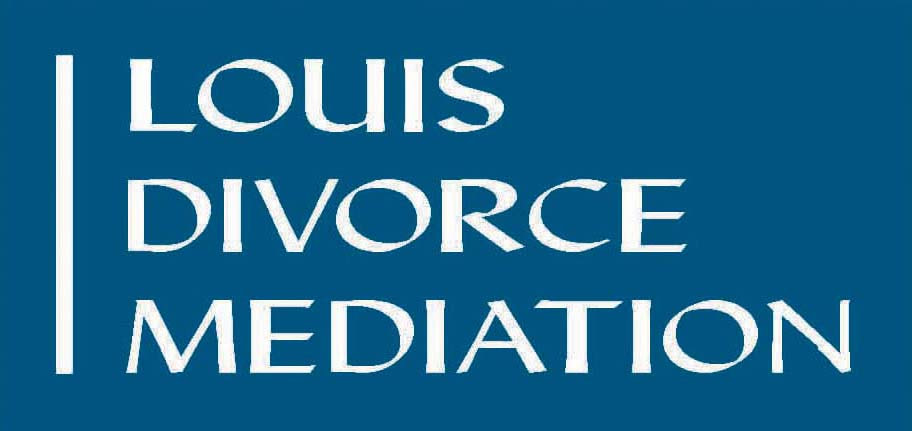Louis Divorce Mediation ~ Online and In-Person Mediation in Chicago
|
At the beginning of the divorce mediation process, I send out a questionnaire to each spouse to help me find out how the couple communicates. In the responses I often discover that both find it hard to communicate effectively. This is not particularly surprising, as poor communication is often a symptom of a broken marriage. So, as a couple enters divorce mediation, the objective of successful communication is often facing off against inherent challenges experienced during the marriage.
When communication centers on disagreements, there is a strong tendency for each side to dig in, assume a strong position, and exhibit intense emotions. Depending on how you participate in these difficult conversations, you may “fight to be right” or, alternately, opt for getting it over with—give in, be done with it and be free. I believe that mediation should promote mutually acceptable decisions. Difficult dynamics, if not addressed during mediation sessions, can often result in agreements that are regretted later by one or both spouses. Divorce mediation involves an aspect of negotiation. More importantly, there is an opportunity in every mediation process to encourage two-way conversation. This promotes understanding and allows each of you to learn from the other. Divorce mediation involves an aspect of negotiation. More importantly, there is an opportunity in every mediation process to encourage two-way conversation. This promotes understanding and allows each of you to learn from the other. I have been engaged in my own learning experience over the past 15 months [credits to Cheryl Picard, author of Practising Insight Mediation, and my teacher, Jacinta Gallant from Prince Edward Island, Canada]. I’ve learned that conflict is rooted in an individual’s perception that something that matters greatly is threatened by the other person. This can worsen when your spoken intention is interpreted quite differently by the other. It's little wonder to me that, in the absence of a neutral mediator who can help you better understand each other, the chances of a resolution that suits both of you will be diminished. For me, the golden nugget in all of this is that you can understand what’s important to each other without necessarily agreeing with what is being said. At the same time, if you understand each other, it’s showing that you are listening to each other. Think how much better you each will feel if you are being heard! Once you are all engaged in a learning dialogue—confident that what you are saying is being interpreted as you hoped it would be—the foundation has been built to explore choices that address what matters to each of you. From there, the path to agreement will hopefully be clearer. Like any building, the ability to withstand the test of time will depend on having a stable foundation.
0 Comments
An article I recently read by Stephanie Vozza was entitled, “’I don’t know’ can be the smartest answer.”
This caught my eye because I have often used a similar saying, namely, “The most important thing that you can know is what you don’t know.” Stephanie’s article goes on to address how this statement can be a lesson for leadership. As a mediator, I do not relate as much to the concept of leadership except to note that I am a leader of the mediation process. This often means taking the lead with my clients in helping you to have a constructive dialogue. Being willing to admit that we don’t have the answer has multiple significances:
Knowing what you don’t know—and being able to communicate this to others—symbolizes truth, curiosity, openness and credibility—all of which can enhance the difficult conversations that take place in divorce mediation. Knowing what you don’t know—and being able to communicate this to others—symbolizes truth, curiosity, openness and credibility—all of which can enhance the difficult conversations that take place in divorce mediation. Each marriage has its own uniqueness, involving two individuals with their own unique identify and style. In past generations, there have typically been assigned roles, like working father and stay-at-home mother, but this division of labor has changed significantly in the modern world. Making assumptions about the current roles of spouses is done at a mediator’s peril!
I have found it important in divorce mediation to consider a critical element in a marriage—the contributions each of you have brought to the relationship, whether positive or negative. While not always directly related to these roles, I find it important in divorce mediation to consider a critical element in a marriage—the contributions each of you have brought to the relationship, whether positive or negative. Why does a future-focused mediation process need to consider individual contributions from the past? Here are a few observations:
It's often been said that the emotions of divorce are similar to those involving death. When a loved one dies, we are moved to celebrate their lives. As your marriage ends, you can still remember what you both contributed positively to the time you were together. |
Categories |
David Louis, MPA, CDFA® • Louis Mediation Services - Chicago
|
Chicago Office: 1700 W Irving Park Rd., Suite 105, Chicago, IL 60613
Northbrook Office: 555 Skokie Blvd., Suite 500, Northbrook, IL 60062 |
Copyright © 2024




 RSS Feed
RSS Feed